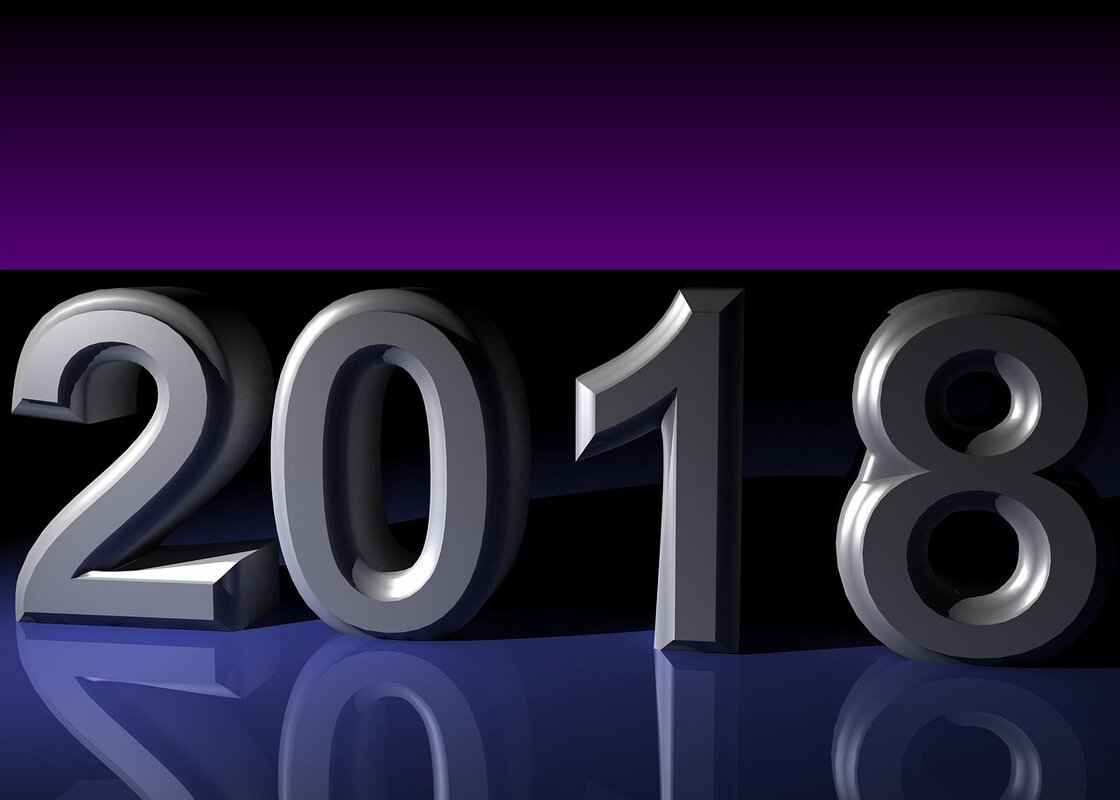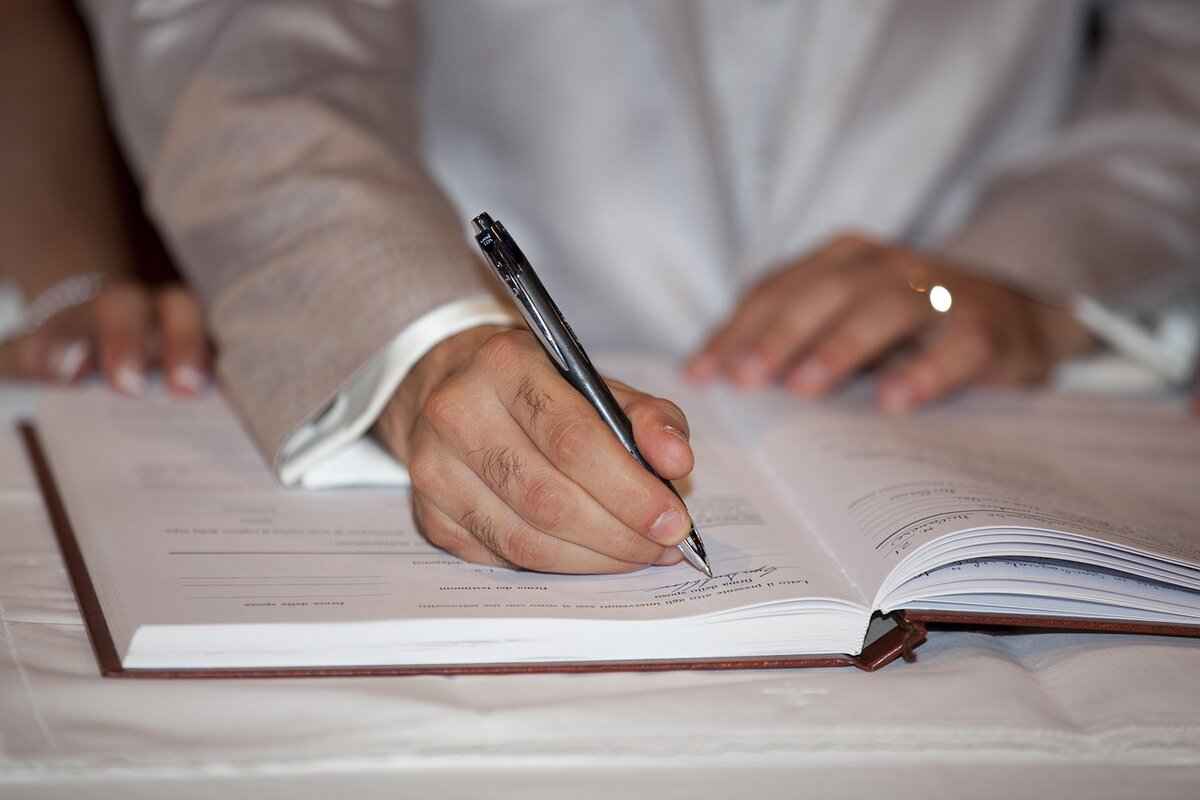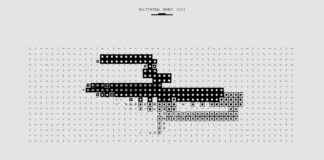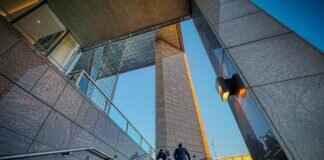This article delves into the critical role and effectiveness of witness statements in court, examining their impact on legal proceedings as well as the various factors that influence their reliability and credibility.
The Importance of Witness Statements in Legal Proceedings
Witness statements are often regarded as essential evidence in legal cases. They provide firsthand accounts that can significantly influence the outcome of trials. By offering direct observations, witness statements can help establish facts, clarify events, and support or contradict other pieces of evidence.
Types of Witness Statements
Understanding the different types of witness statements is crucial for grasping their respective roles in legal cases. These typically fall into two categories: lay witness statements and expert witness statements.
- Lay Witness Statements: These are provided by individuals who have observed relevant events. They offer factual accounts based on personal experience without any specialized knowledge.
- Expert Witness Statements: These are delivered by individuals with specialized knowledge or expertise. They provide informed opinions that can help clarify complex issues for the court.
How Witness Statements Are Collected
The process of collecting witness statements is vital for ensuring their reliability. This involves interviewing witnesses and accurately documenting their accounts.
- The Interview Process: Effective interviews are essential for gathering comprehensive witness statements. Attorneys must ask open-ended questions and create a comfortable environment to encourage witnesses to share their experiences freely.
- Documentation Techniques: Proper documentation, such as recording interviews or taking detailed notes, is crucial for preserving the integrity of witness statements.
The Role of Credibility in Witness Statements
Credibility is a significant factor in the effectiveness of witness statements. Judges and juries must assess the reliability of the information presented.
- Factors Influencing Credibility: A witness’s demeanor, the consistency of their account, and any potential biases can all affect how credible they are perceived to be.
- Credibility Challenges: During cross-examination, witnesses may face challenges to their credibility, where attorneys highlight inconsistencies or question their motivations for testifying.
The Impact of Technology on Witness Statements
Advancements in technology have transformed how witness statements are recorded and presented, enhancing their reliability and accessibility in court.
- Video and Audio Recordings: Utilizing video and audio recordings can provide a more accurate representation of witness statements, preserving the context and tone of their testimony.
- Digital Evidence Integration: Integrating digital evidence, such as text messages or social media posts, can corroborate witness statements and strengthen their impact.
Legal Standards for Witness Statements
Understanding the legal standards governing witness statements is essential for ensuring their admissibility and effectiveness in court proceedings.
- Admissibility Criteria: Witness statements must meet specific criteria, including relevance and reliability, to be considered admissible as evidence.
- Hearsay Rules: Hearsay rules often restrict the use of witness statements that are not based on firsthand knowledge, which can impact their effectiveness in legal arguments.
Impact of Witness Statements on Jury Decisions
The testimony of witnesses can significantly influence jury decisions. Jurors often rely on personal accounts to form their understanding of a case.
- Juror Perceptions: Understanding how jurors perceive witness statements can provide insights into their decision-making processes and the weight they assign to different types of evidence.
- Closing Arguments and Witness Statements: Attorneys frequently reference witness statements in their closing arguments, emphasizing their importance in persuading juries to reach a favorable verdict.
In conclusion, witness statements play an indispensable role in the judicial process. Their effectiveness hinges on various factors, including credibility, the method of collection, and the integration of modern technology. By understanding these elements, legal professionals can better harness the power of witness statements to advocate for their clients.

The Importance of Witness Statements in Legal Proceedings
Witness statements play an essential role in the judicial process, acting as pivotal elements of evidence that can significantly influence the outcome of legal proceedings. They provide firsthand accounts of events, allowing judges and juries to gain insights into the circumstances surrounding a case. The reliability and effectiveness of these statements can vary, depending on several factors, including the witness’s credibility, the method of collection, and the context in which the statements are presented.
In the courtroom, witness statements serve not only to present facts but also to help establish a narrative that jurors can understand. They often bridge the gap between the raw evidence and the legal arguments made by attorneys. The weight given to these statements can be substantial, especially when they resonate with the jurors’ perceptions or emotions.
- Lay Witness Statements: These are provided by individuals who have witnessed specific events related to a case. Lay witnesses typically recount factual observations without any specialized knowledge.
- Expert Witness Statements: In contrast, expert witnesses provide opinions based on their specialized knowledge or experience. Their statements can clarify complex issues and often carry significant weight in influencing judicial decisions.
The process of gathering witness statements is critical to their effectiveness. Attorneys must conduct thorough interviews, ensuring that the accounts captured are both accurate and comprehensive. This involves employing effective questioning techniques and creating a comfortable environment for the witness.
Effective interviews should encourage witnesses to share their accounts freely. Open-ended questions can elicit more detailed responses, while a supportive atmosphere can help witnesses feel at ease, leading to more reliable testimonies.
Accurate documentation is vital. Techniques such as audio and video recordings can preserve the nuances of a witness’s testimony, while detailed note-taking can ensure that no critical information is overlooked.
Credibility is a crucial factor in assessing the effectiveness of witness statements. Jurors must evaluate the reliability of the information presented, which can be influenced by the witness’s demeanor, the consistency of their account, and any potential biases.
Various factors can affect how credible a witness is perceived to be, such as their background, personal experiences, and how they present their statements during testimony. A witness’s ability to remain composed and articulate can also play a significant role in their perceived reliability.
During cross-examination, attorneys may challenge a witness’s credibility by highlighting inconsistencies in their statements or questioning their motivations for testifying. This aspect of the legal process underscores the importance of thorough preparation and the need for witnesses to be well-informed about the events they are recounting.
Recent advancements in technology have transformed the way witness statements are recorded and presented in court. The integration of video and audio recordings can enhance the reliability of testimonies, providing a more accurate representation of the witness’s account.
Furthermore, incorporating digital evidence, such as text messages or social media posts, can corroborate witness statements, adding another layer of credibility and context to their testimonies.
Understanding the legal standards that govern witness statements is crucial for ensuring their admissibility in court. Witness statements must meet specific criteria, including relevance and reliability, to be considered valid evidence.
Hearsay rules often restrict the use of statements that are not based on firsthand knowledge, which can limit the effectiveness of certain witness accounts in legal arguments.
The impact of witness statements on jury decisions cannot be overstated. Personal accounts often resonate more deeply with jurors than abstract evidence, shaping their perceptions and understanding of a case.
Understanding how jurors interpret witness statements can provide valuable insights into their decision-making processes. Attorneys often leverage this understanding during closing arguments, emphasizing the significance of witness testimonies to persuade juries toward a favorable verdict.
Understanding the different types of witness statements is essential for anyone involved in legal proceedings. The effectiveness of these statements can significantly influence the outcome of a case, making it crucial to comprehend their distinct roles. This section delves into the two primary categories of witness statements: lay witness statements and expert witness statements.
Witness statements are categorized based on the qualifications and experiences of the individuals providing them. Each type plays a unique role in the judicial process, contributing to the overall understanding of the case at hand.
- Lay Witness Statements
- Expert Witness Statements
Lay witness statements are provided by individuals who have no specialized knowledge or expertise in the subject matter of the case. These witnesses are typically ordinary people who have observed events relevant to the case. Their accounts are based on what they have seen, heard, or experienced firsthand. Lay witnesses are crucial as they provide factual testimony that can help establish the timeline of events and the context in which they occurred.
In contrast, expert witness statements come from individuals with specialized knowledge, training, or experience in a particular field. These experts are often called upon to provide informed opinions or analyses that can clarify complex issues for the court. For instance, a forensic accountant may be brought in to explain financial discrepancies, while a medical expert could testify about injuries sustained in an accident. The insights provided by expert witnesses can significantly shape the court’s understanding and decision-making process.
Lay witnesses are essential in establishing the facts of a case. Their statements can provide clarity on events that occurred, allowing jurors to visualize the circumstances surrounding the legal matter. However, the effectiveness of lay witness statements can be influenced by factors such as the witness’s credibility, memory, and potential biases. Attorneys often prepare lay witnesses extensively to ensure their testimonies are clear, concise, and relevant.
Expert witnesses, on the other hand, can provide depth to a case by introducing specialized knowledge that laypersons may not possess. Their ability to interpret technical data and present it in an understandable manner can be pivotal. Courts often rely on expert testimony to navigate complicated issues that require a higher level of understanding. However, the admissibility of expert witness statements is subject to scrutiny, as they must meet specific criteria established by legal standards, such as the Daubert standard, which assesses the reliability and relevance of expert testimony.
Both lay and expert witness statements must be collected and presented in a manner that ensures their effectiveness. The credibility of these statements can be affected by various factors, including:
- Witness Demeanor: The manner in which a witness presents their testimony can influence how it is perceived by jurors.
- Consistency: Consistency in a witness’s account strengthens its reliability. Inconsistencies can lead to doubts about the witness’s credibility.
- Potential Bias: Any perceived bias can undermine a witness’s testimony. Attorneys must be prepared to address these concerns during cross-examination.
Understanding the distinctions between lay and expert witness statements is crucial for legal professionals. Each type of statement serves a unique purpose in court, and their effective use can greatly impact the resolution of a case. By recognizing the roles and responsibilities associated with each type, attorneys can better prepare their witnesses and present compelling arguments to the court.

Lay Witness Statements
play a pivotal role in the legal system, serving as a means for individuals without specialized expertise to provide accounts of events they have observed. These statements are not only crucial for establishing facts but also for painting a vivid picture of the circumstances surrounding a case. Unlike expert witnesses, who offer opinions based on their specialized knowledge, lay witnesses contribute firsthand observations that can significantly influence the outcome of legal proceedings.
In the courtroom, lay witness statements are often regarded as foundational evidence. They can provide context, clarity, and support for other evidence presented during trials. The effectiveness of these statements hinges on their ability to convey the truth of what the witness observed, making their credibility essential. The jury or judge must assess the reliability of these accounts, which can ultimately sway their decision-making process.
For a lay witness statement to be effective, it should possess several key characteristics:
- Clarity: The statement must be clear and easy to understand, avoiding legal jargon.
- Detail: Providing specific details about the event enhances the statement’s credibility.
- Relevance: The information must be directly related to the case at hand.
- Consistency: Consistent accounts over time strengthen the witness’s reliability.
While lay witness statements can be powerful, they are not without challenges. The perception of a lay witness may be influenced by:
- Personal Bias: Witnesses may have personal feelings that color their observations.
- Memory Reliability: Human memory can be fallible, leading to discrepancies in accounts.
- Cross-Examination: Opposing counsel may challenge the witness’s credibility during questioning.
The process of collecting lay witness statements is crucial for ensuring their effectiveness in court. Attorneys must conduct interviews with sensitivity and thoroughness. Techniques such as:
- Open-Ended Questions: Encouraging witnesses to share their narratives without leading them.
- Creating Comfort: Ensuring witnesses feel at ease can lead to more accurate recollections.
Additionally, proper documentation of these statements, whether through audio recordings or detailed notes, is essential for preserving their integrity and reliability.
Understanding the legal standards that govern lay witness statements is vital. These statements must meet certain admissibility criteria, including:
- Relevance: The statement must pertain directly to the case.
- Firsthand Knowledge: Witnesses should testify based on their direct observations.
Furthermore, the hearsay rule may restrict statements that rely on what others have said, impacting their admissibility in court.
Lay witness statements can significantly shape jury perceptions and decisions. Jurors often place considerable weight on personal accounts, as these narratives can humanize the evidence and create emotional connections. Understanding how jurors interpret and value these statements is crucial for attorneys aiming to persuade the jury.
In conclusion, lay witness statements are indispensable in the legal landscape. Their ability to provide factual, firsthand accounts makes them a vital component of many cases. By understanding their characteristics, challenges, and the legal framework surrounding them, legal professionals can effectively utilize these statements to advocate for their clients.
Expert Witness Statements
play a pivotal role in the judicial process, particularly in cases that involve complex technical or specialized knowledge. These statements are provided by individuals who possess a high level of expertise in a specific field, allowing them to offer informed opinions that can significantly influence the court’s understanding of the issues at hand.
Expert witnesses are typically professionals with advanced degrees, certifications, or extensive experience in their respective fields. Their primary function is to assist the court by clarifying intricate subjects that may be beyond the comprehension of a layperson. For instance, in a medical malpractice case, a medical expert can explain the standard of care expected from a physician and whether it was breached.
Creating an effective expert witness statement involves a meticulous process. Experts must review all relevant materials, including case files, depositions, and other evidence, to form a well-rounded opinion. This process ensures that their statements are not only credible but also grounded in fact. The statement should detail their qualifications, the methodology used to reach their conclusions, and the opinions they hold regarding the case.
- Clarity: The language used should be accessible and free of jargon, ensuring that judges and juries can easily understand the testimony.
- Relevance: The opinions provided must directly relate to the case and offer insights that assist in resolving the legal issues presented.
- Objectivity: An expert’s statement should reflect impartiality, avoiding bias toward either party in the case.
Expert witnesses often encounter challenges during legal proceedings. Their credibility can be questioned through cross-examination, where opposing counsel may attempt to highlight any perceived weaknesses in their qualifications or the validity of their methodologies. Additionally, the potential for bias must be addressed, as experts who are frequently retained by one side may be viewed as less credible.
The influence of expert witness statements on a case can be profound. Jurors often rely heavily on the insights provided by these experts, particularly when faced with complicated evidence. A well-articulated expert opinion can sway a jury’s understanding and ultimately impact their verdict. In high-stakes cases, the presence of a credible expert witness can make the difference between a favorable and unfavorable outcome.
In the United States, expert witness statements must adhere to specific legal standards to be deemed admissible in court. The Daubert standard is one such criterion, requiring that the expert’s testimony is based on scientifically valid reasoning and methodology. This standard aims to prevent unreliable or irrelevant expert testimony from influencing the court’s decision-making process.
In summary, expert witness statements are essential components of legal proceedings, providing critical insights into complex issues that can shape case outcomes. Their effectiveness hinges on clarity, relevance, and objectivity, while also navigating the challenges of credibility and bias. As the legal landscape continues to evolve, the importance of expert witnesses remains steadfast, underscoring their vital role in ensuring justice is served.
How Witness Statements Are Collected
The process of collecting witness statements is a critical component of legal proceedings. It involves a systematic approach to interviewing witnesses and accurately documenting their accounts to ensure the reliability of the information provided. This section delves into the intricacies of how witness statements are gathered, the techniques employed, and the importance of ensuring that these statements are both comprehensive and credible.
The Interview Process
Conducting effective interviews is essential for gathering comprehensive witness statements. Attorneys must create a comfortable and non-threatening environment to encourage witnesses to share their experiences openly. The following techniques can enhance the interview process:
- Open-Ended Questions: These types of questions allow witnesses to provide detailed accounts without leading them to specific answers. For example, instead of asking, “Did you see the accident?” an attorney might ask, “Can you describe what you observed on the day of the incident?”
- Active Listening: Attorneys should practice active listening, which involves paying full attention to the witness, acknowledging their responses, and asking follow-up questions to clarify details.
- Building Rapport: Establishing a connection with the witness can help them feel more at ease. Simple techniques like making small talk or expressing empathy can significantly impact the quality of the information gathered.
Documentation Techniques
Once interviews are conducted, the next step is to document the witness statements accurately. Proper documentation is vital for preserving the integrity of the statements for court use. Here are some effective documentation techniques:
- Detailed Note-Taking: Attorneys should take comprehensive notes during the interview, capturing not only the words of the witness but also their demeanor and emotions, which can provide context to their statements.
- Audio and Video Recordings: With the consent of the witness, recording the interview can ensure that no details are missed. These recordings can serve as valuable evidence should the statement be challenged later in court.
- Transcription: After the interview, transcribing the recorded statements into written form can help in organizing the information clearly and concisely for legal purposes.
The Role of Follow-Up
Follow-up is equally important in the witness statement collection process. This may involve:
- Clarifying Details: After the initial interview, attorneys may need to reach out to witnesses for clarification on specific points or to gather additional information that may have surfaced.
- Providing Updates: Keeping witnesses informed about the case’s progress can help maintain their engagement and willingness to cooperate throughout the legal process.
In conclusion, the collection of witness statements is a multifaceted process that requires careful planning and execution. By employing effective interviewing techniques and ensuring thorough documentation, attorneys can enhance the reliability of witness statements, which are crucial for building a strong case in court.

The Interview Process
Conducting effective interviews is a pivotal aspect of gathering witness statements, which are essential for building a robust legal case. Attorneys must master the art of interviewing to extract comprehensive accounts from witnesses. This process not only involves asking open-ended questions but also creating a comfortable environment that encourages witnesses to share their experiences freely.
To begin with, the interview setting plays a crucial role in the quality of the information gathered. An attorney should aim to create a non-threatening atmosphere where witnesses feel safe and respected. This can be achieved by choosing a neutral location, ensuring privacy, and establishing rapport with the witness. A friendly demeanor, along with active listening skills, can significantly enhance the witness’s willingness to open up about their observations.
During the interview, attorneys should focus on employing open-ended questions that allow witnesses to elaborate on their experiences without leading them to specific answers. For instance, instead of asking, “Did you see the suspect leave the scene?” an attorney might ask, “Can you describe what you observed during that time?” This approach not only garners more detailed responses but also helps in capturing the witness’s perspective more accurately.
Moreover, it is essential for attorneys to be patient and give witnesses ample time to recall their memories. Some witnesses may take longer to articulate their thoughts, and rushing them can lead to incomplete or inaccurate statements. By practicing patience and encouraging witnesses to share their stories in their own words, attorneys can obtain richer, more nuanced accounts.
Another vital aspect of the interview process is the use of documentation techniques. Attorneys should consider recording interviews—either through audio or video—when appropriate and permissible. This not only preserves the witness’s exact words but also captures their tone and body language, which can be critical in assessing credibility later in court. If recording is not an option, taking detailed notes is essential for accurately reflecting the witness’s statements.
Furthermore, attorneys should be aware of potential biases that could affect a witness’s account. Factors such as personal relationships, emotional states, and external influences can all color a witness’s perception of events. By being attentive to these elements during the interview, attorneys can better evaluate the reliability of the statements provided.
After the interview, it is crucial to follow up with witnesses to clarify any ambiguities and ensure that their statements are accurately documented. This not only reinforces the attorney’s commitment to the witness but also helps in maintaining the integrity of the information collected.
In summary, the interview process is fundamental to gathering effective witness statements. By creating a comfortable environment, asking open-ended questions, practicing patience, utilizing proper documentation techniques, and being mindful of potential biases, attorneys can significantly enhance the quality of witness accounts. This meticulous approach ultimately strengthens the overall case and ensures that the voices of witnesses are heard and valued in the legal process.
In the realm of legal proceedings, the accuracy and reliability of witness statements can significantly influence the outcome of a case. One critical aspect that cannot be overlooked is the documentation techniques employed during the collection of these statements. Proper documentation is essential for preserving the integrity of witness accounts, ensuring they are both credible and admissible in court.
Effective documentation techniques are not merely a procedural formality; they are fundamental to the integrity of the judicial process. Techniques such as recording interviews and taking detailed notes serve to capture the nuances of a witness’s account, which can be pivotal when the case is presented in court. An accurate record can help prevent misinterpretations and provide a reliable reference for both the prosecution and defense.
Recording interviews with witnesses can be particularly beneficial. This method allows attorneys to capture the exact wording and tone of the witness’s testimony, providing a more authentic representation of their statements. Furthermore, recorded interviews can help attorneys identify inconsistencies during cross-examination, as they can refer back to the original recording for clarification. It is essential, however, to obtain the witness’s consent before recording to comply with legal and ethical standards.
In situations where recording is not feasible, taking detailed notes becomes crucial. Attorneys should focus on capturing not just the content of the witness’s statement but also their body language and emotional responses. These non-verbal cues can provide additional context that may be important when assessing the credibility of the witness. Moreover, notes should be organized and clear, allowing for easy reference during trial proceedings.
Advancements in technology have also introduced innovative tools for documenting witness statements. For example, using digital note-taking applications can enhance the organization and accessibility of information. These tools often allow for easy sharing among legal teams and can integrate multimedia elements such as images or audio clips, further enriching the documentation process.
Conducting structured interviews can also enhance the quality of witness statements. By preparing a set of open-ended questions, attorneys can encourage witnesses to provide comprehensive accounts of their experiences. This approach not only gathers more information but also helps to create a narrative that is easier for jurors to understand. Additionally, establishing a comfortable environment for the witness can foster openness and honesty, leading to more reliable statements.
After documenting witness statements, it is vital to review and verify the information gathered. This process may involve cross-referencing the witness’s account with other evidence or statements from additional witnesses. By ensuring that the documentation is accurate and consistent, attorneys can bolster the credibility of the witness’s testimony, increasing its weight in court.
Lastly, attorneys must be aware of the legal and ethical considerations surrounding witness documentation. Adhering to the rules of evidence and ensuring that all documentation techniques comply with legal standards is paramount. This diligence not only protects the integrity of the case but also upholds the rights of the witnesses involved.
In summary, proper documentation techniques are indispensable in the realm of witness statements. By employing effective methods such as recording interviews, taking detailed notes, and utilizing modern technology, attorneys can preserve the integrity of witness accounts, ultimately enhancing their effectiveness in court. This meticulous approach not only aids in the pursuit of justice but also reinforces the trust placed in the legal system.
The Role of Credibility in Witness Statements
In the realm of legal proceedings, credibility is paramount when it comes to evaluating witness statements. The effectiveness of these statements can significantly influence the decisions made by juries and judges. As legal professionals, understanding the intricacies of credibility is essential to presenting compelling cases.
When a witness takes the stand, their credibility is scrutinized. Jurors and judges must assess the reliability of the information presented, which can be influenced by various factors. The perception of a witness’s credibility can determine whether their testimony is accepted as reliable or dismissed as questionable.
- Demeanor and Presentation: A witness’s demeanor during testimony can greatly impact their credibility. Factors such as confidence, eye contact, and body language play a pivotal role in how jurors perceive their reliability. A calm and composed witness is often viewed as more credible than one who appears anxious or evasive.
- Consistency of Accounts: The consistency of a witness’s testimony is crucial. If a witness provides conflicting information at different times, this inconsistency can raise doubts about their reliability. Attorneys must ensure that their witnesses are well-prepared to present coherent and consistent accounts of events.
- Potential Bias: A witness’s background, relationships, and motivations can all introduce bias. For example, if a witness has a personal stake in the case outcome, their testimony may be viewed with skepticism. Attorneys must address potential biases during the preparation of their witnesses.
Moreover, during cross-examination, the credibility of witnesses may face rigorous challenges. Opposing counsel often seeks to highlight inconsistencies or question the motivations behind a witness’s testimony. This process can significantly affect how jurors perceive the reliability of the information presented. A skilled attorney must anticipate these challenges and prepare their witnesses to withstand scrutiny.
In addition to personal attributes, the context in which witness statements are gathered also plays a critical role in establishing credibility. The method of collection—whether through formal interviews, written statements, or video recordings—can impact how the testimony is received in court. For example, video recordings can preserve the tone and context of a witness’s statement, providing jurors with a more comprehensive understanding of the testimony.
Furthermore, the legal standards governing witness statements, including admissibility criteria and hearsay rules, also intersect with credibility. Witness statements must meet specific legal requirements to be considered admissible in court. This includes demonstrating relevance and reliability, which are essential for establishing the credibility of the testimony.
Ultimately, the impact of witness credibility on jury decisions cannot be overstated. Jurors often rely on personal accounts to form their understanding of a case, making the credibility of witnesses a critical component in their deliberations. Attorneys must effectively reference witness statements in their closing arguments, emphasizing their importance in persuading jurors to reach a favorable verdict.
In conclusion, the role of credibility in witness statements is multifaceted and deeply intertwined with the legal process. By understanding the factors that influence credibility, legal professionals can better prepare their cases and enhance the reliability of witness testimony, thereby improving the chances of achieving a favorable outcome in court.
Factors Influencing Credibility are vital in assessing witness statements during legal proceedings. The perception of a witness’s credibility can significantly impact the outcome of a case. Various elements contribute to how a witness is viewed, including their demeanor, the consistency of their account, and potential biases.
Demeanor plays a crucial role in how witnesses are perceived. A witness who appears confident, calm, and composed is often seen as more credible than one who is visibly nervous or evasive. Body language, eye contact, and even tone of voice can influence jurors’ and judges’ impressions. For instance, a witness who maintains eye contact and speaks clearly is likely to be viewed as more trustworthy than one who avoids eye contact or stutters through their testimony.
Another significant factor is the consistency of the account. If a witness provides a coherent and consistent narrative during their testimony, it enhances their credibility. In contrast, if there are discrepancies or contradictions in their statements, it can raise doubts about their reliability. Legal professionals often emphasize the importance of thorough preparation to ensure that witnesses can recount their experiences accurately and consistently. This preparation may involve reviewing details of the event and rehearsing the testimony to minimize inconsistencies.
Potential biases also play a critical role in determining a witness’s credibility. Witnesses may have personal connections to the case or vested interests that could color their testimony. For example, a friend or family member of the defendant might be perceived as biased, leading jurors to question the objectivity of their statements. Attorneys must be vigilant in identifying these biases and addressing them during the trial to ensure that the jury understands the context of the witness’s testimony.
Furthermore, the background and experience of the witness can influence credibility. Witnesses with relevant expertise or experience related to the case may be viewed as more credible, particularly in cases involving technical or specialized knowledge. For instance, an expert witness providing testimony on a medical issue will likely be given more weight than a layperson. Understanding the qualifications and background of a witness is essential for both attorneys and jurors in assessing the reliability of the testimony.
Moreover, the method of testimony delivery can affect how witness statements are perceived. Witnesses who present their accounts in a structured and articulate manner are generally viewed more favorably. Techniques such as storytelling can engage jurors and make the testimony more relatable, thus enhancing credibility. Conversely, disorganized or unclear testimony can lead to confusion and skepticism among jurors.
In addition, cross-examination is a critical aspect of the legal process that can challenge a witness’s credibility. During cross-examination, attorneys may seek to highlight inconsistencies in a witness’s account or question their motivations for testifying. This process is essential in revealing any potential biases or weaknesses in the witness’s testimony, allowing jurors to make informed decisions regarding credibility.
Lastly, external factors such as media coverage or public opinion can also influence how a witness is perceived. High-profile cases often attract significant media attention, which can shape public perception and potentially impact juror opinions. Attorneys must navigate these external influences carefully to ensure that the jury remains focused on the evidence presented in court rather than outside narratives.
In conclusion, understanding the various factors influencing the credibility of witness statements is essential for legal practitioners. By recognizing the significance of demeanor, consistency, potential biases, background, delivery, and external influences, attorneys can better prepare their witnesses and effectively address credibility issues during trial. This comprehensive approach enhances the reliability of witness statements and ultimately contributes to the pursuit of justice.
Credibility Challenges are a critical aspect of witness testimony in legal proceedings. During cross-examination, attorneys often seek to undermine the credibility of witnesses to cast doubt on their statements. This process can significantly impact the outcome of a case, as the perceived reliability of a witness can sway jurors and judges alike.
One of the primary methods attorneys employ during cross-examination is to highlight inconsistencies in a witness’s account. For instance, if a witness provides details that contradict earlier statements or other evidence presented in court, it can raise questions about their reliability. Inconsistencies can manifest in various ways, such as differing timelines, variations in descriptions of events, or conflicting accounts of interactions with other parties involved in the case.
Furthermore, attorneys may explore the motivation behind a witness’s testimony. They might question whether the witness has any personal stake in the outcome of the case, which can lead to perceived bias. For example, if a witness stands to gain financially from a particular verdict or has a personal relationship with one of the parties involved, this could influence their testimony. By probing into these motivations, attorneys aim to establish that the witness may not be providing a completely objective account of the events in question.
Another tactic used during cross-examination is to assess the witness’s demeanor. A witness who appears nervous, evasive, or inconsistent in their responses may be viewed as less credible by jurors. Attorneys may exploit these behaviors to suggest that the witness is not being truthful, thereby weakening the impact of their testimony. The way a witness presents themselves can significantly affect how their statements are received, regardless of the actual truthfulness of their account.
Additionally, the context of the testimony can play a role in credibility challenges. If a witness’s statement is based on hearsay or secondhand information, attorneys may argue that it lacks the necessary reliability to be considered credible evidence. Hearsay rules, which typically exclude statements made outside of court, can limit the admissibility of certain witness accounts, further complicating the credibility assessment.
To bolster their case, attorneys may also introduce expert witnesses who can provide context or counterpoints to lay witness testimony. Expert witnesses, with their specialized knowledge, can help clarify complex issues that lay witnesses may not fully understand, adding another layer to the credibility evaluation. Their insights can either support or undermine the lay witness’s statements, depending on the expert’s findings.
Ultimately, the challenges to a witness’s credibility during cross-examination are a fundamental aspect of the adversarial legal process. Attorneys must skillfully navigate these challenges to present a compelling case, while witnesses must be prepared to defend their accounts against scrutiny. The effectiveness of witness statements hinges not only on the content of their testimony but also on how well they withstand the pressures of cross-examination.
In conclusion, understanding the dynamics of credibility challenges is essential for both legal practitioners and individuals involved in legal proceedings. By recognizing the factors that influence a witness’s credibility, attorneys can better prepare their witnesses and anticipate potential challenges during cross-examination. This preparation can ultimately lead to more effective advocacy and a stronger case in court.
In today’s rapidly evolving legal landscape, technology has significantly influenced the way witness statements are recorded and presented in court. This transformation has not only enhanced the reliability of these statements but has also improved their accessibility for all parties involved in legal proceedings. As we delve deeper into the impact of technology on witness statements, we will explore various advancements that have reshaped the traditional methods of documentation and presentation.
The use of video and audio recordings has revolutionized the way witness statements are captured. Unlike traditional written accounts, these recordings offer a more accurate representation of the witness’s testimony, preserving not just the words spoken but also the context and tone of their delivery. This can be especially crucial in cases where the emotional weight of a statement plays a significant role in its interpretation.
Another significant advancement is the integration of digital evidence, such as text messages, emails, and social media posts, into witness statements. This digital corroboration can serve to enhance the credibility of a witness’s account, providing a multifaceted view of the events in question. For instance, a witness may reference a social media post that aligns with their testimony, thereby reinforcing its validity in the eyes of the court.
Modern technology has also streamlined the documentation process for witness statements. With the advent of cloud-based storage and document management systems, attorneys can easily organize, access, and share witness statements. This not only improves efficiency but also ensures that all relevant information is readily available during trial preparations. Furthermore, the ability to quickly retrieve and present witness statements can significantly impact the pace of legal proceedings.
The rise of video conferencing technology has made it possible for witnesses to provide their statements remotely. This is particularly beneficial in cases where witnesses may be unable to attend court in person due to geographical constraints or health issues. By allowing witnesses to testify from their location, courts can ensure that crucial testimonies are not lost, thereby enhancing the overall accessibility of the legal process.
With the use of advanced transcription software and digital recording devices, the accuracy of witness statements has improved significantly. These tools can minimize human error during the transcription process, ensuring that statements are documented precisely as they were given. Moreover, the use of timestamps and metadata can provide additional layers of reliability, helping to establish the authenticity of the statements presented in court.
Despite the numerous advantages that technology brings to the recording and presentation of witness statements, there are also challenges to consider. Issues such as data security and privacy must be addressed, as sensitive information can be vulnerable to breaches. Additionally, the reliance on technology may raise questions about the authenticity of digital evidence, necessitating strict protocols to verify the integrity of recordings and documents.
In conclusion, the impact of technology on witness statements is profound and multifaceted. By enhancing the reliability and accessibility of these statements, technological advancements have transformed the legal landscape, making it more efficient and effective. As the legal profession continues to adapt to these changes, it is essential for attorneys and legal professionals to stay informed about the latest technological developments and their implications for witness testimony.
In today’s fast-paced legal environment, the integration of technology into the courtroom has become increasingly vital. One significant advancement is the use of video and audio recordings to capture witness statements. This method not only enhances the accuracy of the testimony but also preserves the context and tone of the witness’s account, which can be crucial in legal proceedings.
Witness statements are often the backbone of a case, providing a narrative that juries rely upon to make informed decisions. However, traditional methods of recording these statements, such as written notes or transcripts, can sometimes lead to misinterpretations or omissions. By utilizing video and audio recordings, attorneys can ensure that the witness’s words are captured in their original form, complete with emotional nuances, body language, and inflections that written statements may lack.
One of the primary benefits of using video and audio recordings is the ability to preserve the integrity of the testimony. When a witness is recorded, their statements are documented with a level of fidelity that can be revisited and analyzed later. This is particularly important in cases where the reliability of a witness might be challenged. For example, during cross-examination, opposing counsel may attempt to discredit a witness by pointing out inconsistencies in their testimony. However, with a video or audio recording, the original statement can be referenced directly, allowing the jury to assess the witness’s credibility based on the actual evidence rather than relying solely on memory or interpretation.
Moreover, using these recordings can also help reduce the potential for bias in how testimony is presented. When a witness’s statement is recorded, it minimizes the risk of selective quoting or misrepresentation that can occur with written transcripts. This transparency can foster greater trust in the judicial process, as jurors are more likely to feel confident in the authenticity of the evidence presented to them.
In addition, video and audio recordings can serve as powerful tools for demonstrating the emotional weight of a witness’s account. For instance, a witness’s emotional reaction while recounting a traumatic event can have a profound impact on how jurors perceive the severity of the case. The visual and auditory elements of a recording can evoke empathy and understanding, which are critical in influencing jury decisions.
Furthermore, the use of technology in recording witness statements aligns with the growing trend of integrating digital evidence into legal proceedings. By combining video and audio recordings with other forms of evidence, such as text messages or social media posts, attorneys can create a more comprehensive picture of the events in question. This holistic approach not only strengthens individual witness statements but also enhances the overall narrative of the case.
As technology continues to evolve, the legal profession must adapt to leverage these advancements fully. The incorporation of video and audio recordings into witness testimony not only improves the accuracy of the information presented but also enhances the overall effectiveness of legal arguments. Attorneys who embrace these tools are likely to find themselves at a significant advantage in the courtroom.
In conclusion, the utilization of video and audio recordings in capturing witness statements represents a transformative shift in legal practice. By preserving the context, tone, and emotional nuances of testimony, these recordings can significantly enhance the reliability and impact of witness accounts in court. As such, they are an invaluable resource for legal professionals striving to present the most compelling cases possible.
In today’s digital age, the integration of digital evidence into legal proceedings has become increasingly vital. This integration not only enhances the strength of witness statements but also provides a more comprehensive view of the events in question. Digital evidence, including text messages, social media posts, and even emails, can serve as powerful corroborative tools that bolster the credibility and reliability of witness testimonies.
The use of digital evidence is particularly significant in cases where the events are complex or where there may be conflicting accounts. For instance, a witness may provide a statement regarding a specific incident, but the inclusion of relevant text messages can offer additional context that either supports or contradicts the witness’s account. This evidence can clarify timelines, establish relationships between parties, and even reveal motivations that may not be immediately apparent through spoken testimony alone.
Furthermore, social media platforms often serve as a public record of interactions and events. Posts made by witnesses or involved parties can be scrutinized for inconsistencies or corroborative details. For example, if a witness claims to have been at a specific location during an incident, their social media activity can either support or challenge that assertion. Such evidence is invaluable in legal contexts, as it provides a tangible record that can be analyzed for authenticity and relevance.
The integration of digital evidence also addresses the challenge of witness memory. Human recollection can be fallible, influenced by time, stress, and personal biases. By presenting digital evidence alongside witness statements, legal professionals can create a more robust narrative that is less susceptible to the shortcomings of memory. This combination allows juries and judges to consider both the subjective experience of the witness and the objective data provided by digital records.
However, the admissibility of digital evidence is not without its challenges. Courts require that such evidence meet specific legal standards, including relevance and reliability. Attorneys must ensure that the digital evidence is properly authenticated and that it has not been tampered with or altered in any way. This process often involves expert testimony to validate the integrity of the evidence, further reinforcing its impact in court.
Moreover, the use of digital evidence can significantly affect jury perceptions. Jurors are increasingly accustomed to consuming information through digital platforms, making them more receptive to evidence presented in these formats. As a result, digital evidence can enhance the persuasiveness of witness statements, making them more relatable and understandable for jurors who may otherwise struggle with complex legal jargon.
In conclusion, the integration of digital evidence into witness statements is a transformative development in the legal field. By providing corroborative support, enhancing the credibility of testimonies, and addressing the limitations of human memory, digital evidence plays a crucial role in shaping the outcomes of legal proceedings. As technology continues to evolve, its impact on the judicial process will likely grow, making it essential for legal professionals to stay informed about best practices for utilizing digital evidence effectively.
Legal Standards for Witness Statements
Understanding the legal standards governing witness statements is essential for ensuring their admissibility and effectiveness in court proceedings. Witness statements are often pivotal in shaping the outcome of a case, and their legal standing can determine whether they will be accepted as evidence. This section delves deeper into the criteria that witness statements must meet to be considered valid in a courtroom setting.
Admissibility Criteria
For a witness statement to be admissible, it must satisfy several legal criteria:
- Relevance: The statement must pertain directly to the facts of the case at hand. If a statement does not contribute to proving or disproving a relevant fact, it may be excluded.
- Reliability: The information contained within the statement must be credible and trustworthy. Courts often assess the circumstances under which the statement was made.
- Firsthand Knowledge: Witnesses must have direct knowledge of the events they are testifying about. Statements based on hearsay or secondhand information are typically inadmissible.
Hearsay Rules
Hearsay refers to an out-of-court statement that is being offered for the truth of the matter asserted. Under the Federal Rules of Evidence and similar state laws, hearsay is generally inadmissible unless it falls under specific exceptions. Understanding these rules is crucial for attorneys when preparing witness statements:
- Exceptions to Hearsay: Certain statements may be admissible under exceptions, such as excited utterances or statements made for medical diagnosis.
- Non-hearsay Purposes: Sometimes, statements may be introduced not for their truth but to show that they were made, which can impact the case.
Importance of Compliance with Legal Standards
Compliance with legal standards is not merely a procedural formality; it is fundamental to the integrity of the judicial process. Failure to adhere to these standards can result in:
- Exclusion of Evidence: Non-compliance may lead to the exclusion of witness statements, weakening a party’s case.
- Adverse Inferences: Judges or juries may draw negative conclusions about a party’s credibility if they perceive attempts to circumvent legal standards.
Practical Insights for Attorneys
Attorneys must be diligent when preparing witness statements. Here are some practical insights:
- Thorough Interviews: Conduct detailed interviews to capture accurate accounts, ensuring that witnesses understand the importance of their statements.
- Documentation: Utilize audio or video recordings where appropriate to preserve the context and nuances of witness testimony.
- Pre-trial Preparation: Prepare witnesses for potential challenges to their credibility, including possible cross-examination tactics.
Conclusion
In summary, the legal standards governing witness statements are critical to their admissibility in court. By understanding the criteria for relevance, reliability, and firsthand knowledge, attorneys can better prepare their cases. Additionally, awareness of hearsay rules and compliance with legal standards can significantly impact the effectiveness of witness statements. Ultimately, thorough preparation and adherence to these legal frameworks will enhance the credibility and impact of witness testimony in court proceedings.
Admissibility Criteria are essential for determining whether witness statements can be utilized as evidence in a court of law. For a witness statement to be considered admissible, it must fulfill specific legal standards that ensure its relevance and reliability. This article delves into these criteria, emphasizing their significance in judicial proceedings.
In the realm of legal proceedings, the admissibility of witness statements hinges on two primary factors: relevance and reliability. Relevance pertains to whether the witness’s account has a direct connection to the case at hand, while reliability concerns the accuracy and trustworthiness of the statement.
To be deemed relevant, a witness statement must provide information that directly impacts the facts of the case. For instance, if a witness observed a car accident, their statement detailing the events leading to the crash would be relevant. Conversely, a witness’s opinion on unrelated matters would not meet the relevance criterion. Courts often use the Rule of Relevance, which states that evidence must have a tendency to make a fact more or less probable than it would be without the evidence.
Reliability is assessed through various factors, including the witness’s ability to recall events accurately and the consistency of their account. A witness who provides a detailed and coherent narrative is generally viewed as more reliable than one whose statements are vague or contradictory. Courts may also consider the witness’s background and any potential biases that could affect their testimony.
Another critical aspect of admissibility is the hearsay rule. Hearsay refers to statements made outside of the court that are offered as evidence to prove the truth of the matter asserted. Generally, hearsay is inadmissible unless it falls under specific exceptions, such as statements made under the belief of impending death or those made in the course of business. Understanding these exceptions is crucial for attorneys when preparing witness statements for court.
The process of documenting witness statements also plays a vital role in their admissibility. Statements should be recorded accurately, with attention to detail. This can include taking verbatim notes during interviews or using audio and video recordings to capture the witness’s account. Such documentation not only preserves the integrity of the statement but also helps to establish its reliability in court.
The legal standards governing the admissibility of witness statements significantly impact trial outcomes. A statement that meets both relevance and reliability criteria can bolster a case, while one that fails to meet these standards may be dismissed, potentially weakening the overall argument. Therefore, attorneys must meticulously evaluate each witness statement against these criteria to ensure that they contribute effectively to their case.
- Prepare Witnesses: Educate witnesses about the importance of their statements and the need for clarity and honesty.
- Conduct Thorough Interviews: Use open-ended questions to elicit detailed responses and avoid leading questions that may introduce bias.
- Document Carefully: Ensure all witness statements are documented accurately and in a timely manner to preserve their reliability.
In summary, understanding the admissibility criteria for witness statements is crucial for attorneys navigating the complexities of the legal system. By focusing on relevance and reliability, and adhering to legal standards, legal professionals can enhance the effectiveness of witness statements in court, ultimately influencing the trajectory of legal proceedings.
In the realm of legal proceedings, hearsay rules play a pivotal role in determining the admissibility of witness statements. These rules are designed to ensure that the evidence presented in court is reliable and based on firsthand knowledge. Hearsay, by definition, refers to statements made outside the courtroom that are offered as evidence to prove the truth of the matter asserted. Such statements are typically considered unreliable, as they lack the opportunity for cross-examination and the scrutiny of a witness’s credibility.
Understanding the implications of hearsay rules is essential for legal practitioners. These rules often restrict the use of witness statements that are not based on firsthand knowledge, which can significantly impact their effectiveness in legal arguments. For instance, if a witness attempts to recount what someone else said about an incident, that testimony may be excluded under hearsay rules. This exclusion can lead to gaps in evidence, potentially weakening a party’s case.
Types of Hearsay Exceptions
Despite the general prohibition against hearsay, there are several exceptions that allow certain statements to be admitted as evidence. Understanding these exceptions is crucial for attorneys aiming to present compelling arguments:
- Present Sense Impression: Statements made during or immediately after an event, providing a real-time account of what occurred.
- Excited Utterance: Statements made under the stress of excitement caused by a startling event, reflecting the declarant’s immediate reaction.
- Statements for Medical Diagnosis: Statements made for the purpose of medical diagnosis or treatment, often considered reliable due to the declarant’s motivation to obtain accurate information.
- Business Records: Records created in the regular course of business, which can be admitted as evidence if they meet specific criteria.
The Impact of Hearsay Rules on Legal Arguments
Hearsay rules can significantly affect the strategies employed by attorneys. When preparing a case, attorneys must carefully evaluate the statements they intend to use. If a witness’s statement falls under the category of hearsay, attorneys must either find a way to challenge the hearsay objection or seek to fit the statement within one of the established exceptions.
Moreover, the effectiveness of witness statements can be influenced by how well attorneys articulate the relevance and reliability of the evidence presented. This requires a thorough understanding of both the facts of the case and the hearsay rules that may apply. Attorneys must be prepared to argue against hearsay objections and provide the court with compelling reasons to admit the testimony.
Challenges in Hearsay Cases
One of the primary challenges in cases involving hearsay is the potential for misinterpretation of the evidence. Jurors may struggle to understand the nuances of hearsay and its implications for the case. This lack of understanding can lead to misjudgments regarding the weight of the evidence presented. Therefore, it is imperative for attorneys to clearly explain the hearsay rules to jurors, ensuring they grasp the significance of the statements being evaluated.
Additionally, the credibility of witness statements is often called into question during cross-examination. Attorneys opposing the use of hearsay may highlight inconsistencies or challenge the motivations behind the statements. This underscores the importance of presenting strong, firsthand accounts that can withstand scrutiny.
Conclusion
In summary, hearsay rules are a critical component of the legal system that governs the admissibility of witness statements. Understanding these rules, along with their exceptions, is essential for attorneys aiming to build strong cases. By effectively navigating hearsay challenges and presenting reliable evidence, legal practitioners can enhance the likelihood of favorable outcomes for their clients.
Impact of Witness Statements on Jury Decisions
The testimony of witnesses plays a pivotal role in shaping jury decisions during legal proceedings. Jurors often rely heavily on personal accounts to form their understanding of a case, making witness statements a crucial component of the trial process. This article delves into the various ways witness statements can influence jury outcomes, highlighting key factors that contribute to their effectiveness.
Understanding Juror Perceptions
Jurors are tasked with evaluating evidence and determining the facts of a case. The credibility of witness statements significantly affects how jurors perceive the case. A compelling witness can evoke emotional responses, leading jurors to sympathize with a party or feel a sense of injustice. Research indicates that jurors are more likely to be persuaded by relatable narratives that resonate with their own experiences.
The Weight of Personal Accounts
Witness statements provide firsthand accounts that can clarify complex situations. Jurors often find these personal narratives more engaging than technical evidence. For instance, a lay witness recounting an event can create a vivid picture that helps jurors visualize the circumstances surrounding a case. This emotional connection can be more impactful than expert testimony, which may lack the personal touch that resonates with jurors.
Closing Arguments and the Role of Witness Statements
During closing arguments, attorneys frequently reference witness statements to reinforce their case. By summarizing key testimonies, they can remind jurors of the most compelling points that support their arguments. This strategic use of witness statements can sway jurors’ opinions and solidify their verdicts. Attorneys may also highlight inconsistencies in opposing witness statements to undermine credibility, further influencing juror perceptions.
Factors Influencing the Effectiveness of Witness Statements
- Consistency: A consistent account of events enhances a witness’s credibility. If jurors perceive discrepancies in a witness’s testimony, it may lead them to question the reliability of the information presented.
- Demeanor: The demeanor of a witness during testimony can affect how jurors interpret their statements. Confident, composed witnesses are often viewed as more credible than those who appear nervous or uncertain.
- Bias and Motive: Jurors are trained to consider potential biases or motives behind a witness’s testimony. If a witness has a personal stake in the outcome of the case, jurors may be less inclined to accept their statements as factual.
The Impact of Technology on Witness Statements
Advancements in technology have transformed how witness statements are recorded and presented in court. Video and audio recordings can enhance the reliability of witness accounts by capturing tone and context. Additionally, integrating digital evidence, such as text messages or social media posts, can corroborate witness statements and provide a comprehensive view of the events in question.
Legal Standards for Witness Statements
For witness statements to be effective, they must meet specific legal standards. Admissibility criteria ensure that only relevant and reliable statements are presented in court. Understanding hearsay rules is also essential, as statements based on secondhand information may not hold the same weight in the eyes of jurors.
In summary, witness statements are a fundamental aspect of the legal process, significantly influencing jury decisions. By understanding the factors that affect their effectiveness, attorneys can better prepare and present witness testimony, ultimately impacting the outcome of cases.
Understanding how jurors perceive witness statements is a critical aspect of the legal process, as it directly influences their decision-making and the ultimate verdict in a case. Jurors are tasked with evaluating the credibility and reliability of the evidence presented, and witness statements often play a pivotal role in this evaluation. By examining the factors that affect juror perceptions, we can gain valuable insights into the dynamics of the courtroom and the weight jurors assign to different types of evidence.
One of the primary factors that influence juror perceptions is the credibility of the witness. Jurors tend to assess a witness’s reliability based on their demeanor, confidence, and consistency in recounting events. A witness who appears calm and composed is more likely to be perceived as credible than one who exhibits signs of nervousness or uncertainty. Furthermore, jurors often look for consistency in witness statements. If a witness’s account aligns with other evidence or testimonies presented during the trial, jurors are more inclined to assign greater weight to that statement.
Another significant factor is the type of witness providing the testimony. Lay witnesses, who recount factual observations, may be viewed differently than expert witnesses, who offer specialized knowledge. Jurors may place more trust in expert testimony when complex issues are at stake, such as in cases involving medical or technical matters. The perceived authority of the expert can significantly sway juror opinions, making it essential for attorneys to effectively present their expert witnesses.
Additionally, jurors are influenced by the context in which witness statements are presented. The way attorneys frame and reference these statements during their arguments can shape juror perceptions. For instance, in closing arguments, attorneys often highlight key witness statements to reinforce their narrative and persuade jurors to adopt their perspective. This strategic emphasis can lead jurors to assign more weight to certain testimonies based on their presentation rather than the content alone.
Biases also play a crucial role in how jurors perceive witness statements. Jurors bring their personal experiences and beliefs into the courtroom, which can affect their interpretation of witness credibility. For example, if a juror has a preconceived notion about a particular demographic or profession, they may unconsciously discount or overvalue a witness’s statement based on those biases. This underscores the importance of jury selection and the need for attorneys to be aware of potential biases that could influence juror perceptions.
Furthermore, the impact of technology on witness statements cannot be overlooked. With advancements in digital evidence, jurors now have access to video and audio recordings of witness testimonies, which can enhance their understanding and perception of the statements. These recordings provide context and emotional nuance that written transcripts may lack, allowing jurors to form a more comprehensive view of the witness’s credibility.
In summary, understanding how jurors perceive witness statements is vital for legal practitioners. Factors such as witness credibility, the type of witness, context, biases, and technological advancements all contribute to the weight jurors assign to different pieces of evidence. By recognizing and addressing these elements, attorneys can better prepare their cases and effectively communicate the importance of witness statements to jurors, ultimately influencing the outcome of legal proceedings.
In the intricate world of legal proceedings, witness statements hold immense weight, particularly during closing arguments. These statements, which encapsulate firsthand accounts of events, can be pivotal in swaying a jury’s opinion and ultimately influencing the verdict. Attorneys often draw upon these statements to reinforce their narratives, making them a cornerstone of persuasive legal strategy.
Witness statements can be categorized into two main types: lay witness statements and expert witness statements. Lay witnesses provide factual accounts based on their observations, while expert witnesses offer insights grounded in specialized knowledge. Each type serves a unique purpose in court, and understanding their distinctions is crucial for attorneys aiming to craft compelling arguments.
During closing arguments, attorneys emphasize the significance of witness statements by highlighting key aspects of the testimony that align with their case theory. For instance, they may focus on the consistency of a lay witness’s account to establish credibility or leverage an expert’s opinion to elucidate complex issues. This strategic emphasis not only reinforces the attorney’s position but also aids jurors in comprehending the case’s nuances.
Moreover, the credibility of witness statements is paramount. Jurors assess the reliability of testimony based on various factors, including the witness’s demeanor, the consistency of their statements, and any potential biases. An attorney’s ability to present witness statements effectively can significantly enhance their credibility in the eyes of the jury. This is particularly important when facing challenges during cross-examination, where opposing counsel may attempt to undermine a witness’s reliability.
Advancements in technology have further transformed how witness statements are utilized in court. The integration of video and audio recordings allows for a more accurate representation of witness testimony, preserving not just the content but also the emotional context in which it was delivered. Additionally, the incorporation of digital evidence, such as social media posts or text messages, can corroborate witness statements, providing a more robust framework for the argument being presented.
Legal standards governing witness statements also play a crucial role in their effectiveness. For a statement to be admissible in court, it must meet certain criteria, including relevance and reliability. Furthermore, attorneys must navigate hearsay rules, which often limit the use of statements not based on firsthand knowledge. Understanding these standards is essential for attorneys to ensure that their arguments are grounded in legally admissible evidence.
In the realm of jury decision-making, witness statements can profoundly impact the outcome of a case. Jurors often rely on these personal accounts to form their understanding of events, making the presentation of witness statements during closing arguments a critical phase of the trial. Attorneys must be adept at framing these statements in a way that resonates with jurors, enhancing their persuasive power.
Ultimately, the art of closing arguments hinges on the effective use of witness statements. By skillfully weaving these accounts into their narratives, attorneys can create a compelling case that not only informs but also persuades jurors to reach a favorable verdict. The interplay between witness credibility, the strategic presentation of testimony, and the integration of technological advancements underscores the vital role that witness statements play in the pursuit of justice.
Frequently Asked Questions
- What is the purpose of witness statements in court?
Witness statements serve as essential evidence, providing firsthand accounts that can significantly influence the outcome of a case. They help juries and judges understand what happened from different perspectives.
- How are witness statements collected?
The collection of witness statements involves interviewing witnesses to document their accounts accurately. Attorneys often use open-ended questions to encourage detailed responses and ensure the environment is comfortable for the witness.
- What factors affect the credibility of a witness statement?
Several factors can impact a witness’s credibility, including their demeanor during testimony, the consistency of their account, and any potential biases they may have. These elements are crucial for judges and juries when evaluating the reliability of the information presented.
- How does technology enhance witness statements?
Advancements in technology, such as video and audio recordings, allow for a more accurate representation of witness statements. These tools help preserve the context and tone of testimonies, making them more reliable in court.
- What are the legal standards for admissibility of witness statements?
For witness statements to be admissible in court, they must meet specific criteria, including relevance and reliability. Hearsay rules can also restrict the use of statements not based on firsthand knowledge, affecting their effectiveness.














